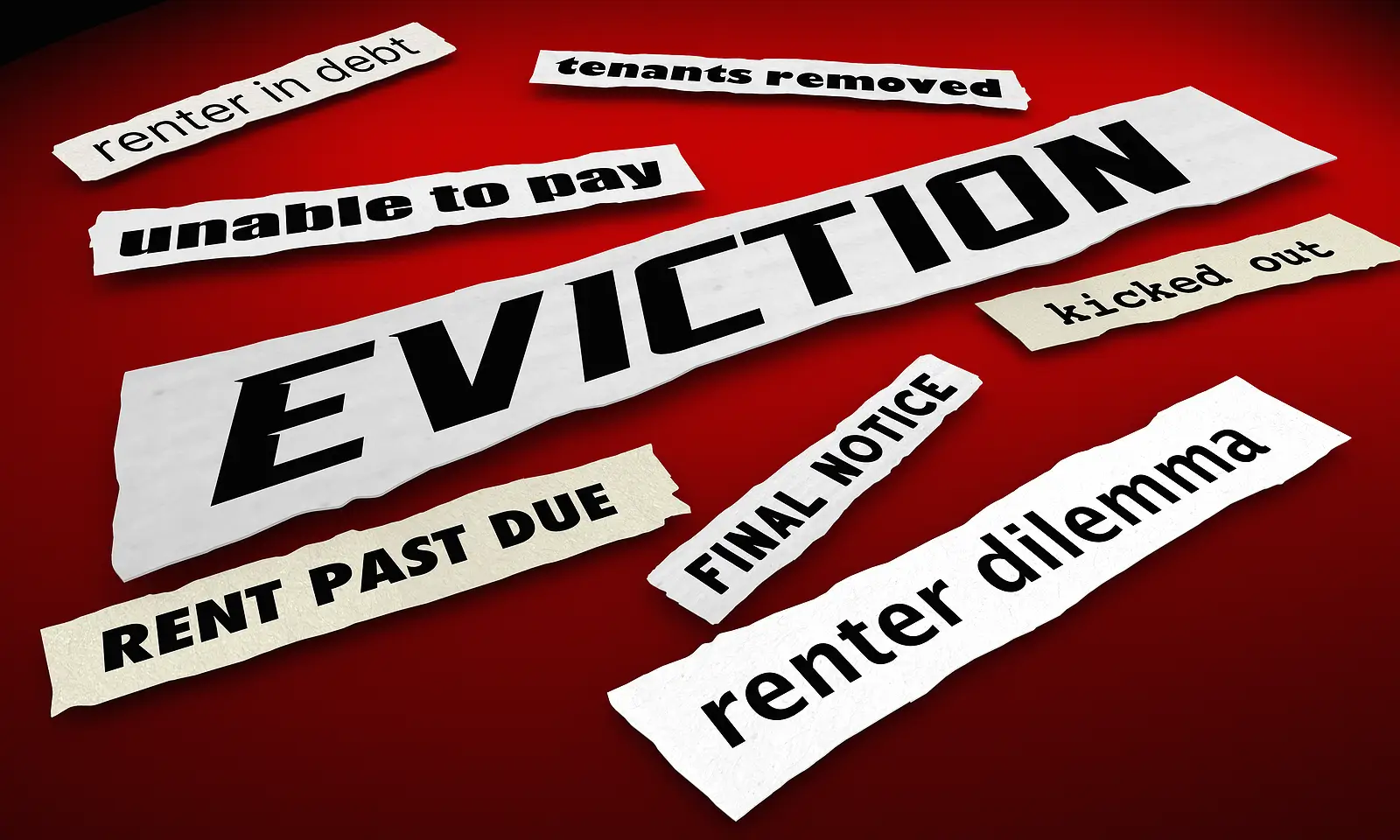Ignoring Oregon eviction laws can lead to serious consequences for landlords. These laws set rules for the eviction process, required notices, and the rights of landlords and tenants. Missing a step, like serving a proper eviction notice or following the right notice period, can cause costly legal fees and court costs. It can also lead to delays that hurt your rental business.
If you’re confused about dealing with the eviction process, understanding Oregon law is crucial. This article explains the Oregon eviction process and common mistakes to avoid so you can protect your rental unit and handle evictions smoothly. Read on.
Understanding Oregon Eviction Laws
Oregon's eviction laws are outlined in the Oregon Revised Statutes and updated through legislation, such as House Bill 2001. These laws govern everything from how to give a proper eviction notice to how a landlord wins an eviction case. They also define what's required in a rental agreement or lease agreement, and what actions qualify as lease violations.
Failure to follow state law can result in your eviction action being thrown out, even if your tenant hasn’t paid rent in months.
Your Helpful Guide to the Oregon Eviction Process
The Oregon eviction process starts long before going to court. First, a landlord must serve a written notice. The notice period depends on the situation:
- 72-hour notice for overdue rent
- 10-day notice for unauthorized pets or unauthorized occupants
- 24-hour notice for illegal activity or domestic violence
- 30-day or 60-day no-cause eviction notice during a month-to-month tenancy
Each eviction notice must clearly state the valid reason, cite the violation or lease terms, and explain the lease period left, if any. The notice must be delivered according to Oregon law, or your entire eviction lawsuit could be dismissed.
If the tenant doesn’t fix the issue or move out, you can file court documents and begin formal eviction proceedings.
Filing an Eviction Lawsuit in Oregon
If your tenant fails to move out, you’ll need to start an eviction action in court. Be prepared to pay filing fees, possibly attorney fees, and other legal fees such as court appearances, legal defense, and sheriff's office services.
Here’s how it works:
- File a complaint with the court.
- Serve the tenant with a court order and summons.
- Wait for the tenant to appear in court and file a written answer.
- Present your evidence of lease violations, back rent, or other valid reasons.
- Await the court’s decision.
The eviction process usually takes a few weeks, but delays are common, especially if the tenant claims unlawful eviction, files an appeal, or requests additional time to move.
What Can Go Wrong If You Ignore Oregon Eviction Laws?
Let’s say the landlord intends to evict a tenant for nonpayment of rent. You deliver a verbal warning and change the locks a few days later. This is a clear violation of tenant-landlord law and is considered forcible entry and an unlawful eviction.
The penalties for not following Oregon eviction laws can be severe. You may be ordered to pay the tenant’s attorney fees, return or cover the cost of the tenant’s belongings, and pay court costs, along with possible damages.
In some cases, you might have to restart the entire eviction case from scratch. Additionally, if law enforcement officers, such as the sheriff’s office, get involved without proper court orders, you could face even more legal trouble.
Common Eviction Triggers in Oregon
Typical reasons a landlord may pursue eviction include overdue rent, unauthorized pets or occupants, and lease violations such as damaging the rental unit or illegal subletting. Illegal activity, including the use of controlled substances, is also a common cause. Other serious reasons include domestic violence, sexual assault, or criminal acts that lead to a police response.
Additionally, landlords may use a no-cause eviction during certain legal windows. However, Oregon law limits the use of no-cause eviction notices during the first year of a fixed-term lease or if the property falls under rent control regulations.
Special Situations: Eviction Moratoriums and Legal Exceptions
During the COVID-19 pandemic, Oregon put in place an eviction moratorium that protected tenants from eviction for nonpayment under certain conditions. Even though the moratorium has ended, many protections remain for renters who are struggling to pay.
Special rules also apply in cases involving family members living in the rental unit, violence-related events where the police responded, and renters with disabilities or tenants who have service animals such as a pet.
It’s important to stay current with Oregon eviction laws because house bills and local ordinances can change the legal landscape quickly.
Tips for Landlords to Avoid Costly Mistakes
To avoid losing your eviction lawsuit or facing legal consequences, follow these best practices:
- Use a clear, written rental agreement that outlines lease terms and responsibilities.
- Serve the correct eviction notice with a proper notice period and legal wording.
- Document lease violations and unpaid rent thoroughly.
- Avoid taking actions like changing locks or removing a tenant’s belongings without a court order.
- Don’t attempt to evict without a legal basis. It could backfire and result in a legal defense claim from the tenant.
- Use a rental application process that screens tenants fairly to reduce future issues.
Don't Risk It: Know the Eviction Rules in Oregon
Oregon eviction laws directly affect how you manage your rental property. Following the right steps protects your investment, helps you avoid legal issues, and keeps the process moving smoothly. But mistakes like giving the wrong notice or filing at the wrong time can lead to penalties, delays, and added expenses.
Each situation, whether it's unpaid rent, lease violations, or ending a month-to-month tenancy, comes with its own rules. Some cases involve added protections for tenants, like those with service animals or a history of domestic violence. Missing a detail can force you to restart the process and increase your costs.
Clear guidance can make all the difference. PMI Central Oregon provides full-service property management designed to keep you compliant with Oregon law. Our team uses smart tools and proven systems to handle notices, timelines, and legal requirements with care.
Call PMI Central Oregon today to learn how we can help you protect your property and simplify every step of the rental process.
FAQ About Oregon Eviction Laws
1. Can I evict a tenant in Oregon during the winter months?
Yes, evictions can take place during any season in Oregon. There is no seasonal restriction, but you must still follow all legal notice periods and procedures under Oregon eviction laws to avoid delays or legal issues.
2. What happens if a tenant leaves personal belongings behind after an eviction?
Landlords must follow specific steps under Oregon law before disposing of a tenant’s belongings. You’ll need to store the items for a set period, provide written notice, and allow the tenant time to reclaim their property before removing or selling it.
3. Do I need a written rental agreement to start an eviction case?
While a written rental or lease agreement is strongly recommended, Oregon law does recognize oral agreements. However, proving the terms of an oral agreement in court can be difficult, so having a written lease helps protect both the landlord and the tenant.


